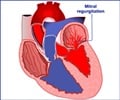- Angina - (http://www.nhlbi.nih.gov/health/dci/diseases/angina/angina_all.html)
- Diagnosis and Management of the Metabolic Syndrome - (http://circ.ahajournals.org/cgi/content/full/112/17/e285)
- Metabolic syndrome - (http://en.wikipedia.org/wiki/metabolic_syndrome)
Metabolic Syndrome - About
Nomenclature: Metabolic Syndrome X, Dysmetabolic Syndrome, Syndrome X, Insulin Resistance Syndrome, Reaven's Syndrome.
Metabolic Syndrome is a group of medical conditions that increases an individual’s risk of developing diabetes and coronary heart disease and increases their chances of dying due to the heart disease.
Metabolic syndrome may not in the strict sense be a “real syndrome”; they are a cluster of conditions that co-exist together and have a common origin.
It is believed that a common causative factor maybe responsible for a group of life-style related problems. They are obesity, impaired fasting glucose, elevated triglycerides, low high-density lipoprotein cholesterol, and hypertension. A change in lifestyle, for example, loosing weight, can control the development of overt diabetes mellitus or coronary artery disease.
Why do these conditions occur together? And when they do occur together, why are they so much more dangerous than they are when they occur separately? Researchers do not know. They do not even sometimes agree on a single, common definition of the syndrome.
Most researchers say that waistline fat and insulin resistance—two important metabolic abnormalities associated with the syndrome—are of importance. Some consider insulin resistance to be the prime reason behind the occurrence of the syndrome. That is the reason why Metabolic Syndrome is also often called ‘Insulin Resistance Syndrome’.















